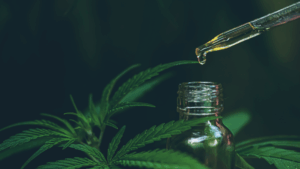Forbes recently released an article called Marijuana Study Finds CBD Can Cause Liver Damage. It focuses on a recent research article from the journal Molecules, called “Hepatotoxicity of a Cannabidiol-Rich Cannabis Extract in the Mouse Model.” The researchers made their own CBD extract and took findings from GW’s Epidiolex clinical trials to give equivalent dosages to mice to observe the short-term effects. Keep in mind that their COA showed residual hexane, which is a known hepatotoxin.
The author uses this study to claim that CBD might be just as dangerous as alcohol or acetaminophen (Tylenol). These substances both have safe daily recommended amounts that do not harm the liver. But while alcohol’s abuse is well known and acetaminophen toxicity has replaced viral hepatitis as the most common cause of acute liver failure in the US, CBD has zero abuse potential because it is non-intoxicating, so its users have no incentive to approach similar levels.
GW observed that 20 mg/kg is the safe maximum daily dose of CBD. That’s 9 mg/lb. For a 100 pound person, that would be 900 mg a day. That’s between 1-2 grams for most adults.
The mouse researchers tested the effects of giving this max dose in a single day, and separately, the effects of giving it for fourteen days in a row. They then went on to perform the same test using triple the recommended safe daily dose and then once more using 10 times the limit.
In the same-day phase of testing, all of the detrimental effects occurred at the 3x and 10x levels. No negative effects were reported for the recommended safe maximum dose.
In the two-week phase, detrimental effects occurred only at the highest level. The author leaves a strong implication that CBD killed some of the mice, however, that isn’t the case. Some mice in the highest dosage group became so lethargic and anemic that the researchers decided to kill them on the third day. Mice in the lower two levels exhibited no visible signs of toxicity throughout the two weeks.
Because GW Pharma already determined a maximum recommended dose, it should come as no surprise that amounts higher than that can cause problems. Most people who regularly use CBD can’t or won’t ever come close to the “maximum” recommended amount due to cost, access, or simply needing less because of using whole plant extracts.
The author goes on to point out the warning on Epidiolex packaging that there is a risk for liver injury because 5-20% of patients in recent clinical trials experienced elevated liver enzymes. The overwhelming majority of increases in enzymes were at the 20mg/kg dose in combination with Valproic acid, another known liver toxin. Their published article cites three specific studies to support the case for elevated enzymes. In all three studies, the risk of elevated enzymes mostly applies to users who are also taking other medications, the risk isn’t severe, and the problem resolves itself for most. The author somehow conflates that to say all CBD users will develop a disease.
The fact that CBD can interact with other drugs in the liver is well-known and practices are already in place to avoid or minimize negative reactions.
As long as a reasonable amount of CBD is taken, and it isn’t taken at the same time as other medications, then there is a minute chance of a negative reaction occurring.
The author begrudgingly concedes that there is research on the positives of CBD. He brings up a study showing that cannabis users have a significant dose-dependent reduction in the odds of developing each of the four major stages of alcoholic liver disease. He quotes a doctor who said cannabis can lead to progression of liver disease in patients with hepatitis C, however, “cannabis” isn’t defined here and there is no citation provided by Healthline. The RoC Research Library has more studies showing the positives of cannabinoids for the liver.
One of his final warnings about CBD is actually a testament to its therapeutic potential. “CBD regulates 50 genes.” The keyword here is “regulate.” CBD works to regulate the rest of the body and help bring it to homeostasis. CBD actually has over 80 mechanisms of action.
The author concludes by saying that due to all the harms that CBD poses, users may as well be taking vodka to ease what ails them. Equating CBD to vodka is not a fair comparison. This article highlights why it’s important to do your own fact-checking and not accept everything you read at face value.





